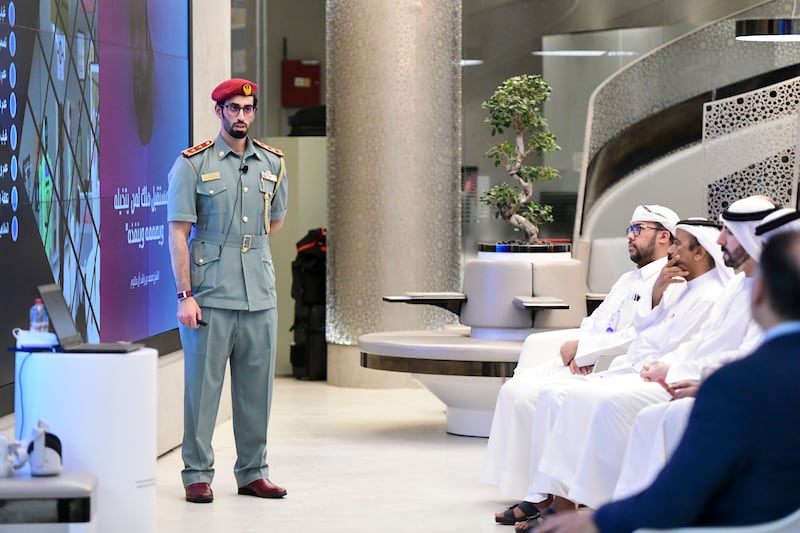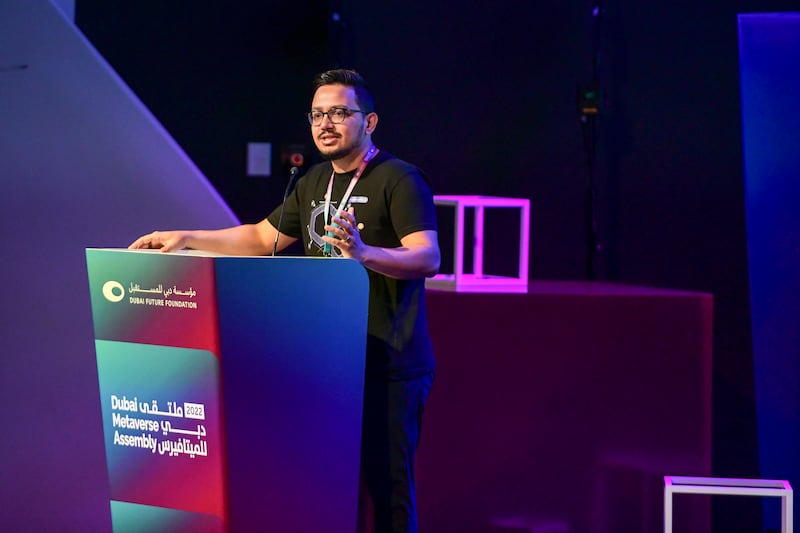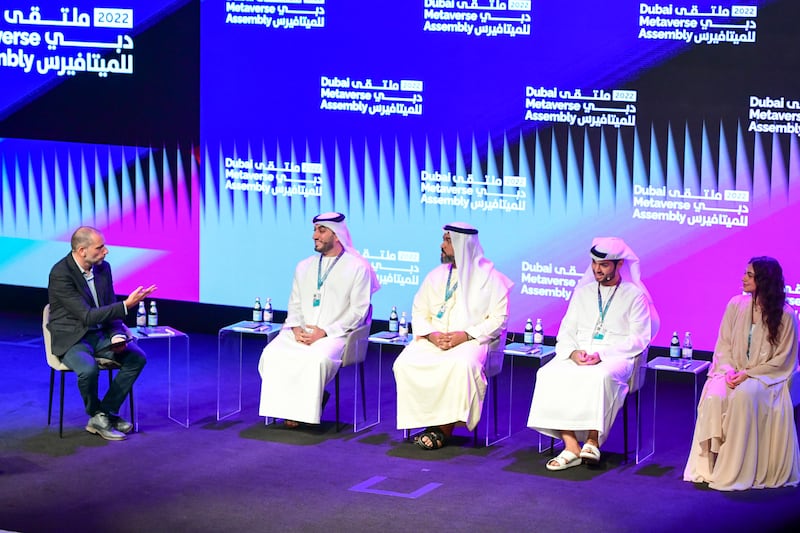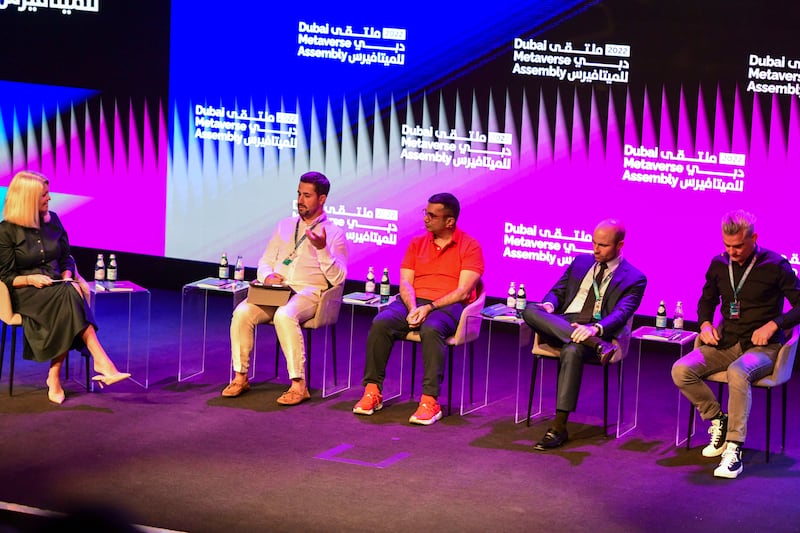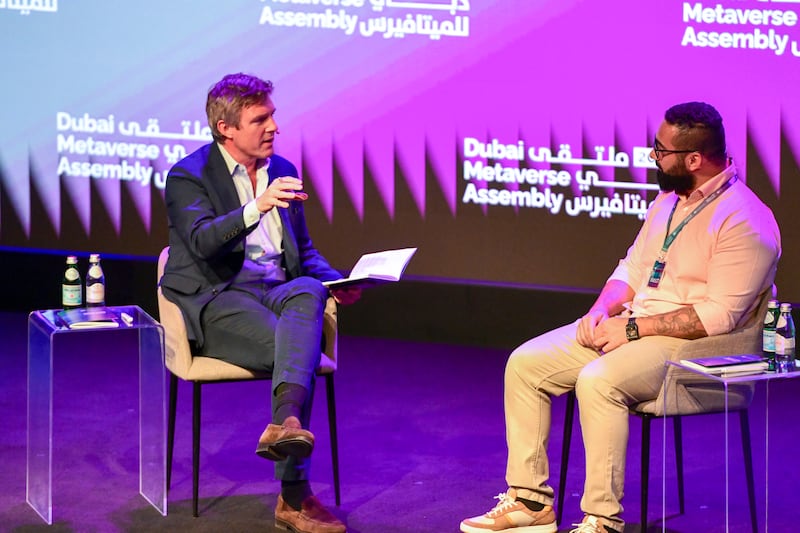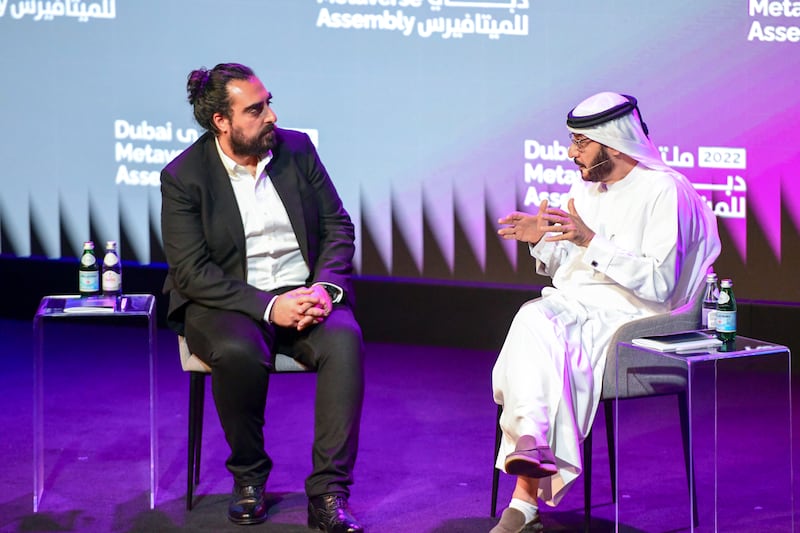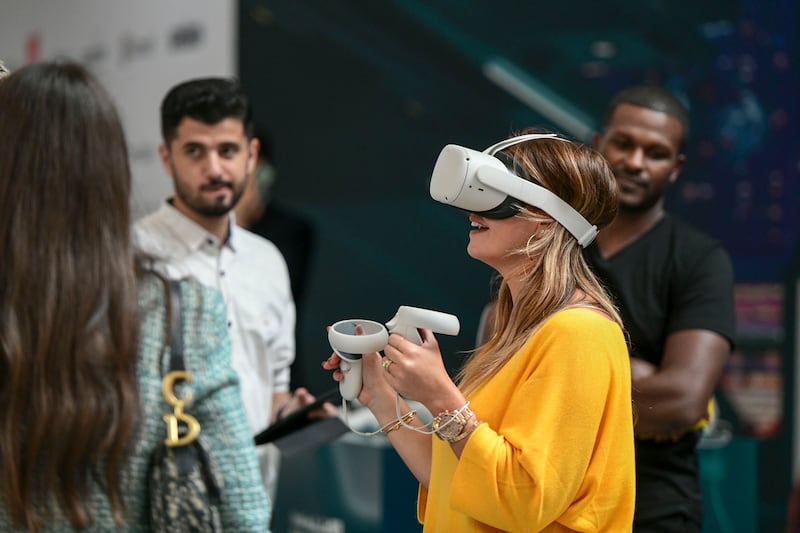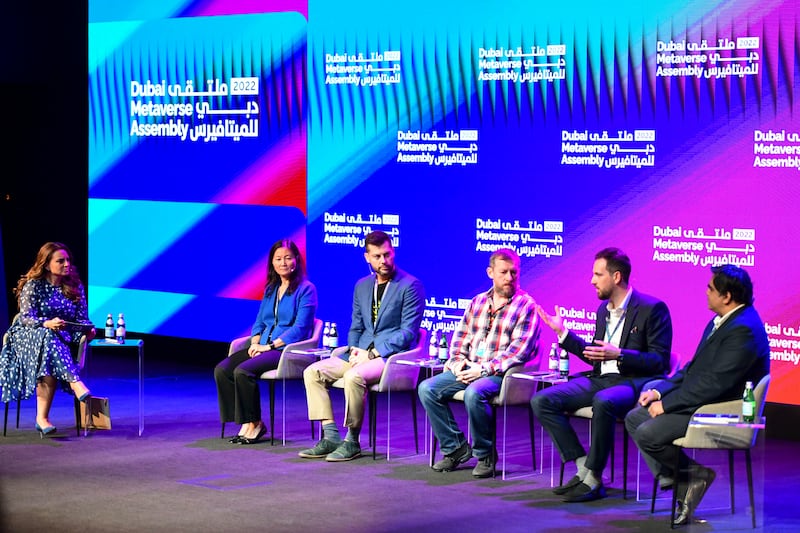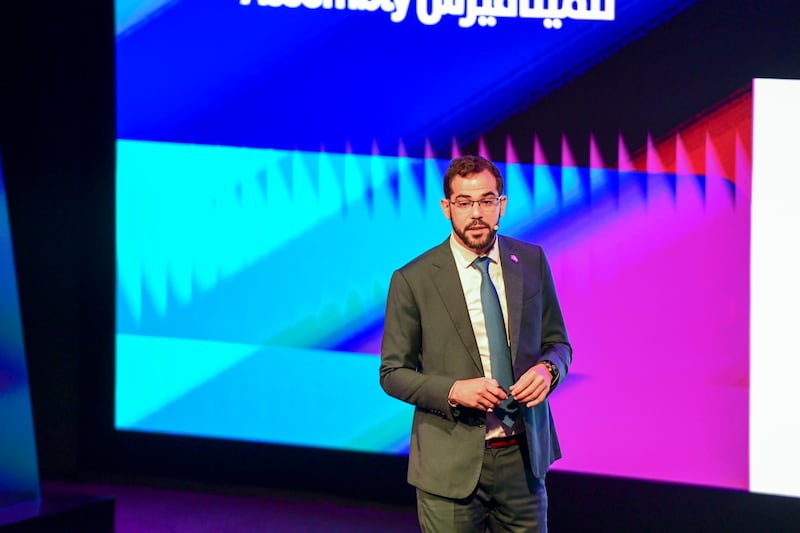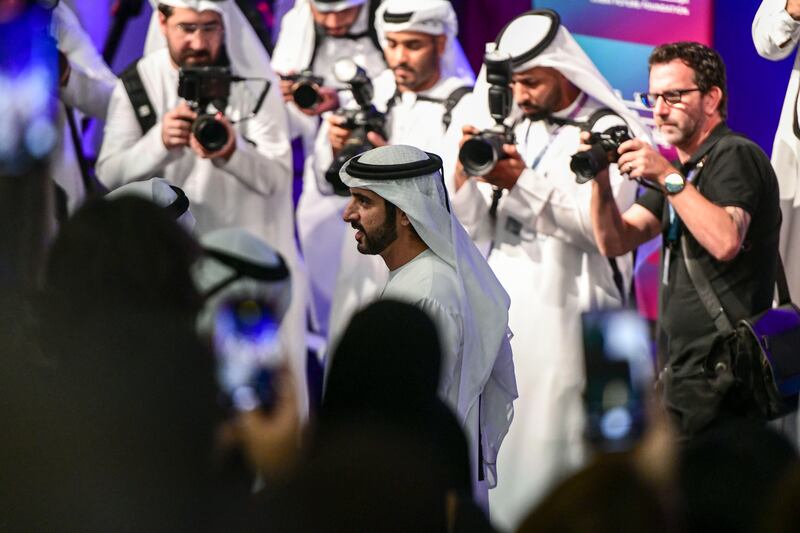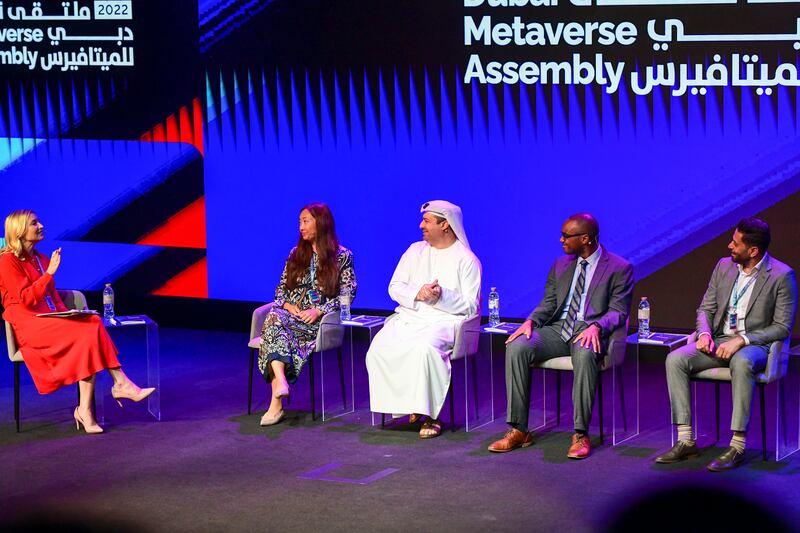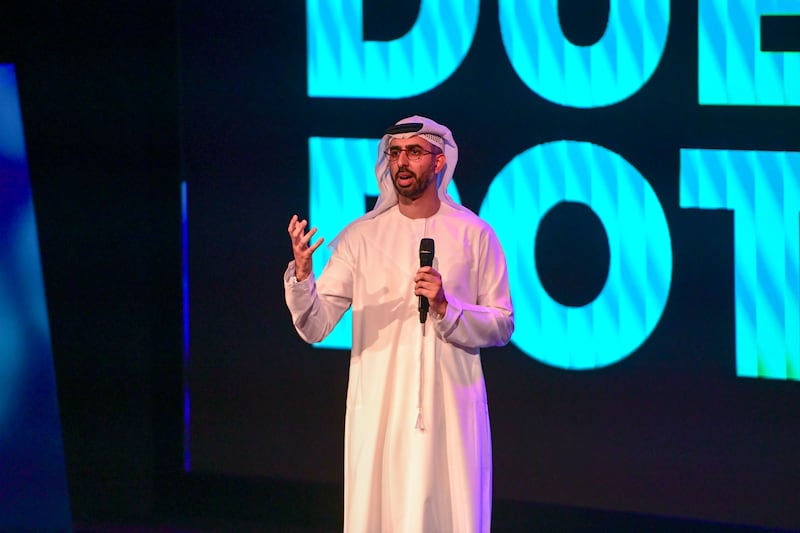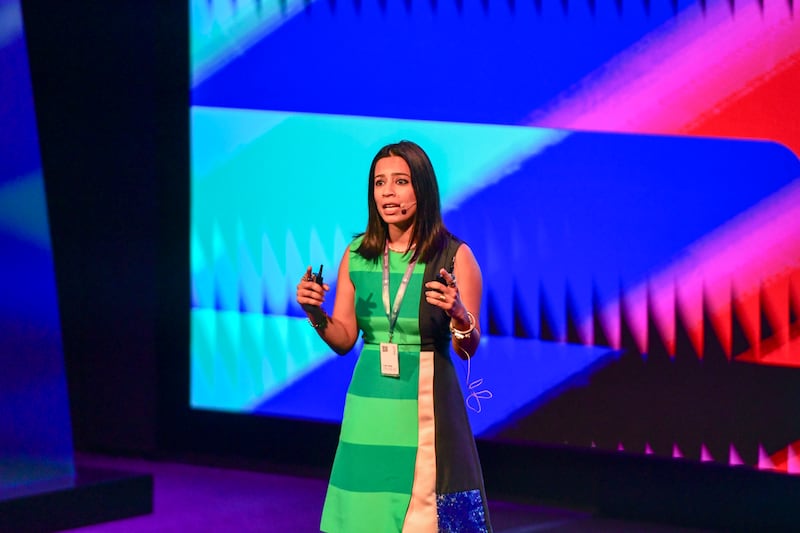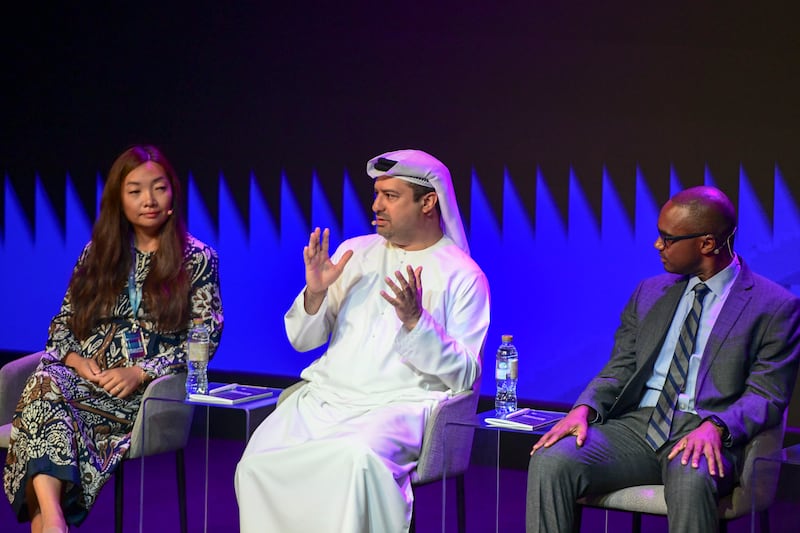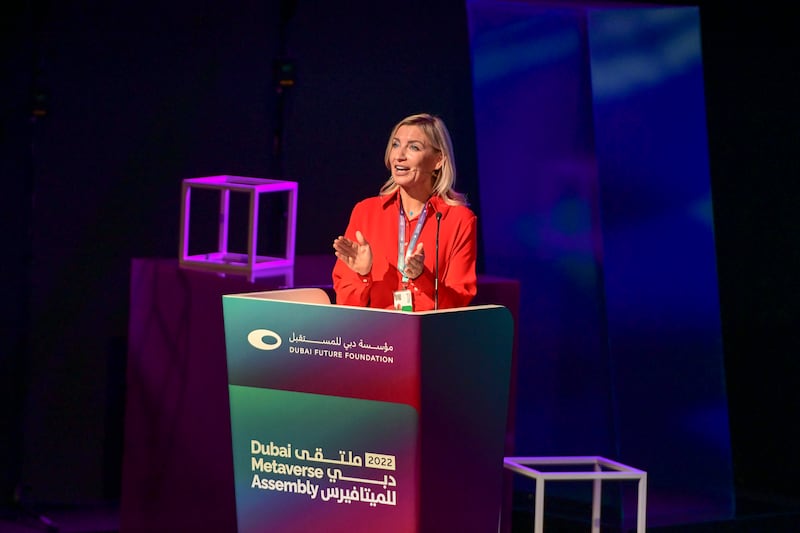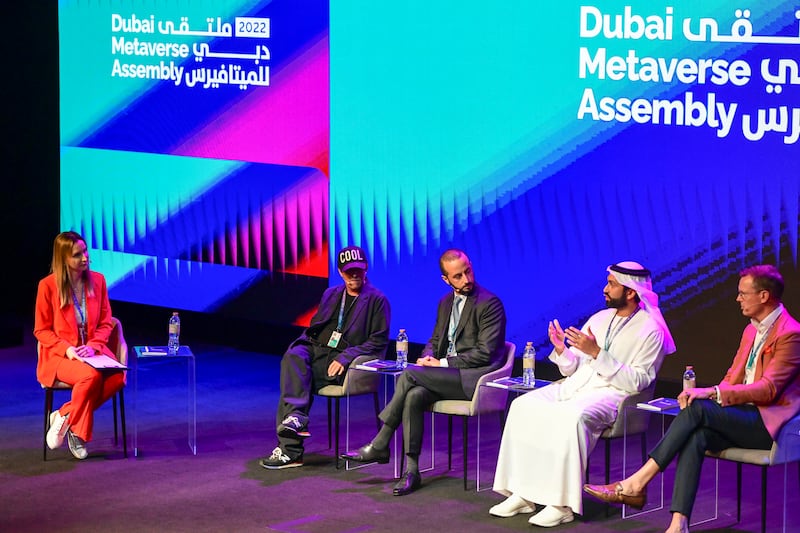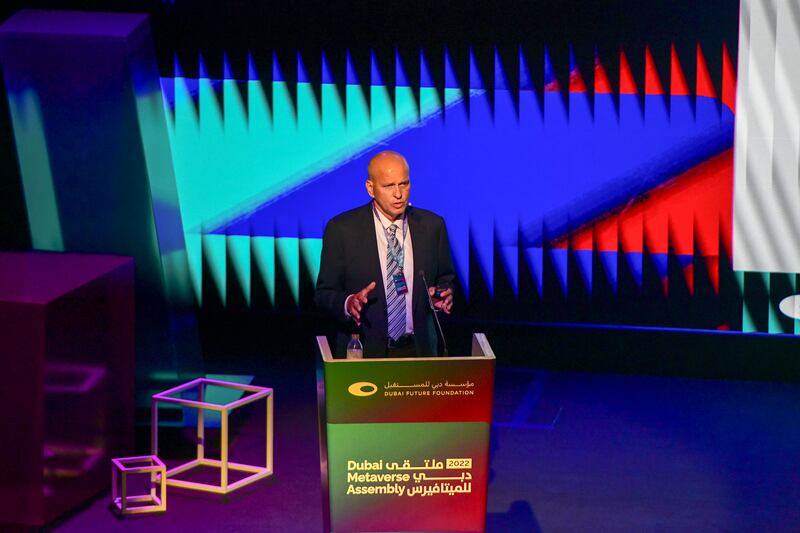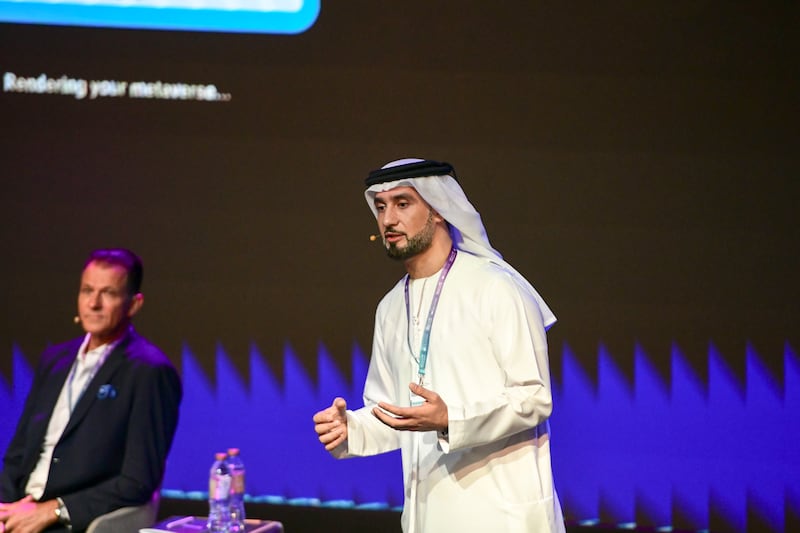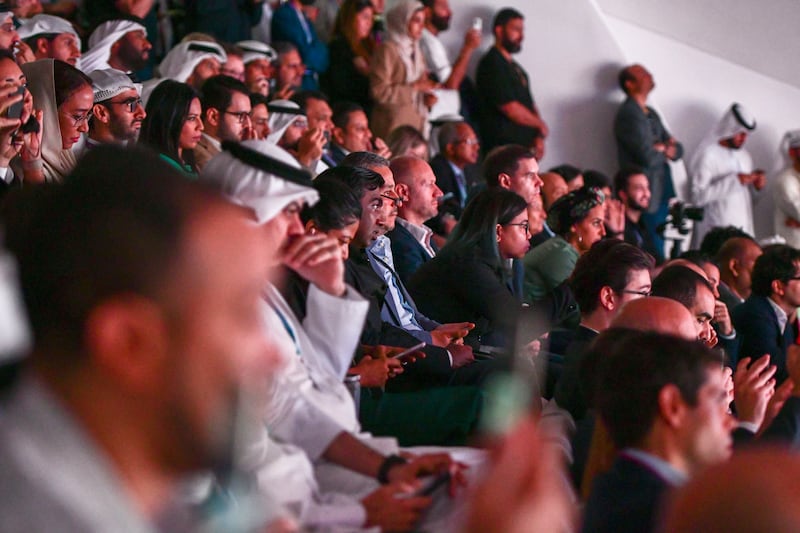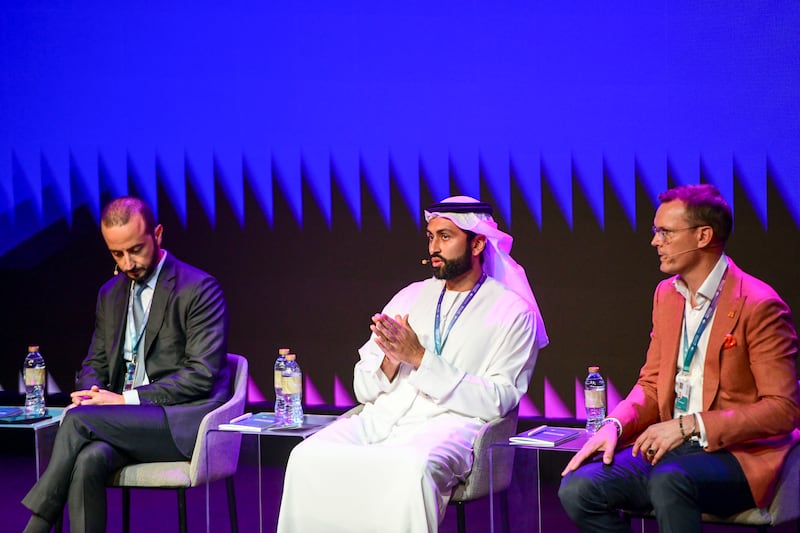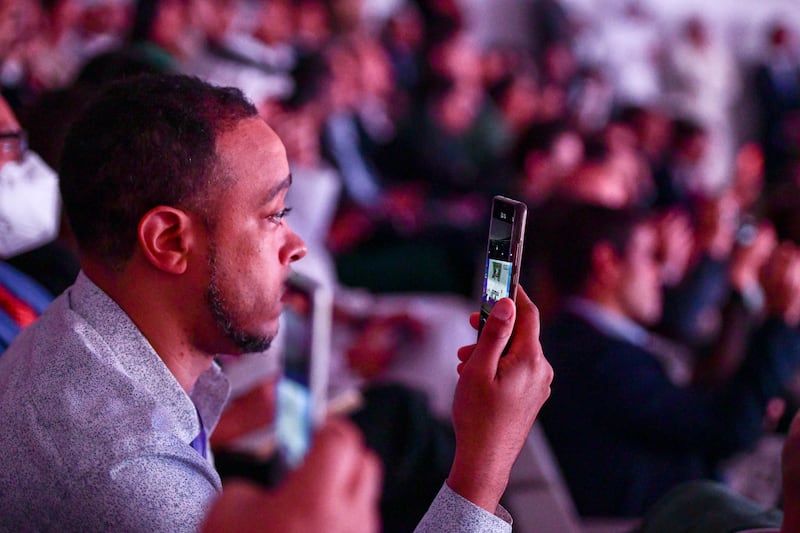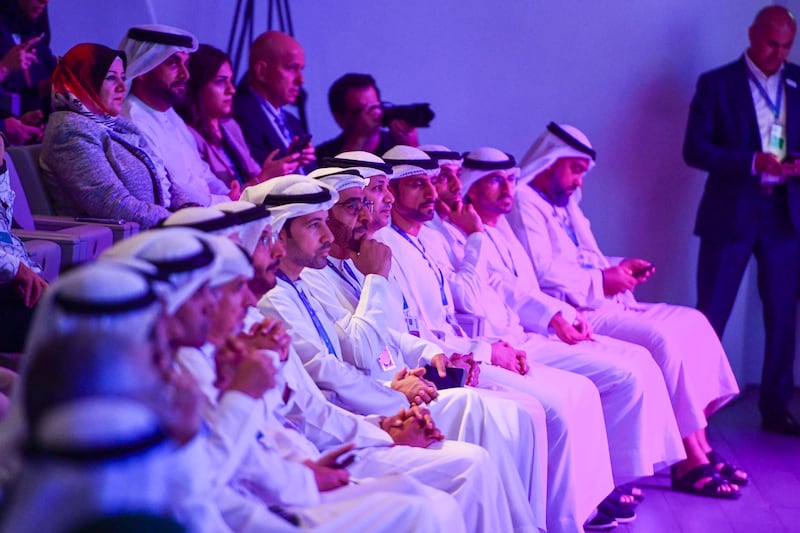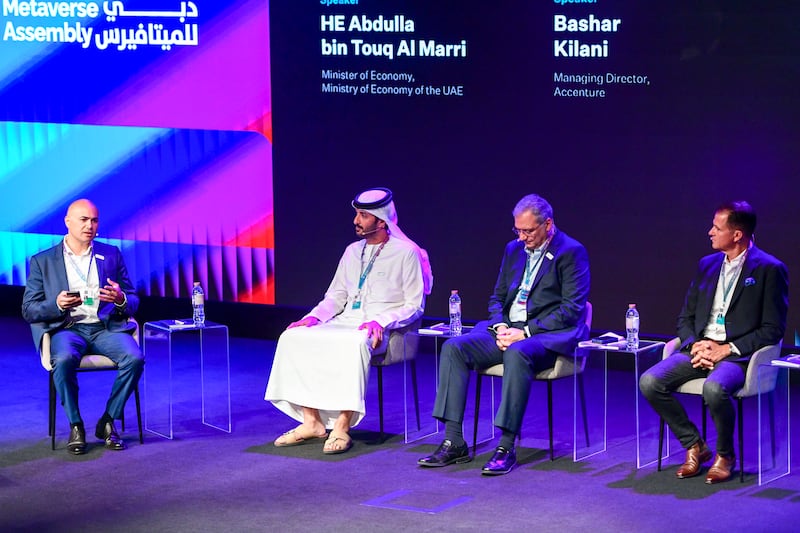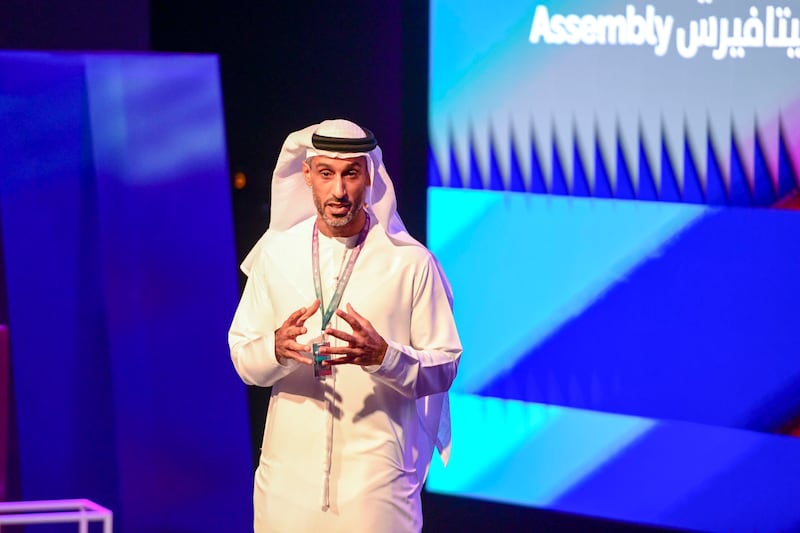Dubai is considering plans to implement a new economic output metric to measure the contribution of the metaverse to its economy, according to the Minister of State for Artificial Intelligence, Digital Economy and Remote Work Applications.
The new metric, set to be called "gross metaverse product", will showcase how the emerging technology is poised to be a significant contributor to the future economy, Omar Al Olama said at the Dubai Metaverse Assembly on Wednesday.
"Gross metaverse product will be able to create billions of dollars in returns from Dubai without people being physically in the emirate but experiencing it in the metaverse," said Mr Al Olama, who is also chairman of the Dubai Chamber of Digital Economy.
The sectors that the metric will be applied to include tourism, education, retail, real estate and the government, he said.
The minister did not reveal any further details or when it is likely to be launched.
The metaverse, an emerging space where people can interact in virtual worlds, presents an economic opportunity worth between $8 trillion and $13tn, although it is heavily dependent on how much companies are willing to invest in the emerging innovation, according to consultancy PricewaterhouseCoopers.
The UAE has taken a number of steps to promote the adoption of the metaverse.
In July, officials unveiled the Dubai Metaverse Strategy, which aims to create 40,000 jobs and add $4 billion to the emirate's economy over the next five years.
Mr Al Olama stressed that Dubai is building the metaverse with a pragmatic view, ensuring that its development is not based on hype or unproven mechanics, but rather, on a strategy with tangible outcomes.
"We have a goal of making Dubai one of the leaders in the metaverse globally," he said.
A major benefit that the metaverse provides for the workforce is that it helps protect workers and also has the potential to pay higher salaries, said Sultan bin Sulayem, chairman and chief executive of Dubai-based ports operator DP World.
"The metaverse is a technology that we need, as it allows us to interact better and has so much potential in our business," he said at the assembly.
"The impact for the people will be better because you will move people from a job that is dangerous and doesn’t pay much to one that is safer and pays more."
DP World in May said it was tapping into the metaverse with a new platform to solve supply-chain challenges.
The platform, called DPMetaWorld, is expected to be released by the end of 2022 and will use digital solutions and accelerate their adoption through the untapped capabilities of the metaverse, “helping drive efficiency and transparency”, the company said at that time.
Mr bin Sulayem said that the digitisation of jobs allows companies, such as DP World, to delegate employees to other essential tasks to make operations more robust, which in turn would result in higher revenue.
Citing an example, he said that instead of staff operating machines, which is a repetitive job and can be automated, they can be reassigned to other areas such as mobilising cargo and negotiating prices with clients, which would add value to the company's overall operations.
"People would be in the office doing their best ... that is better for me and the business," he added.


